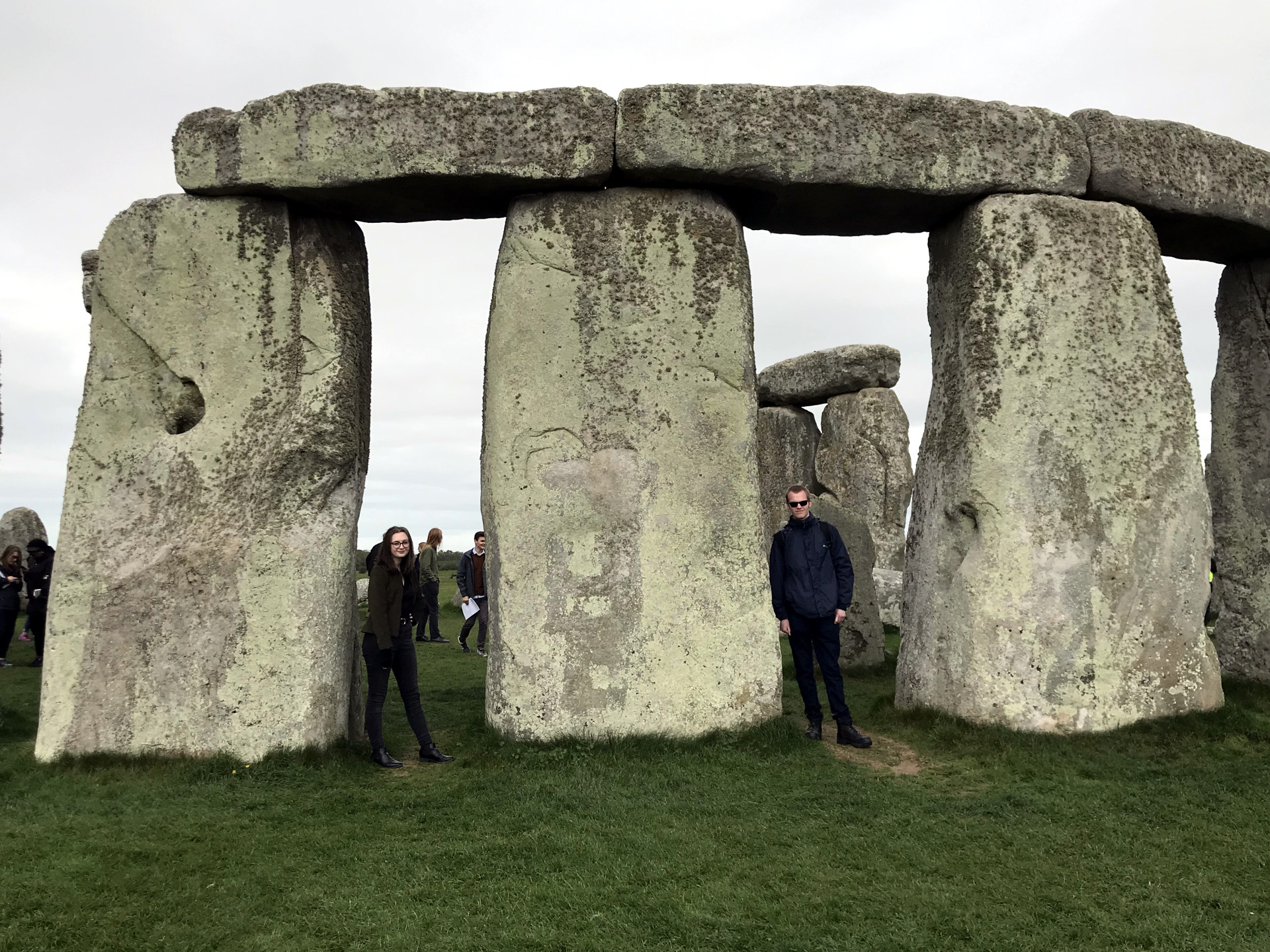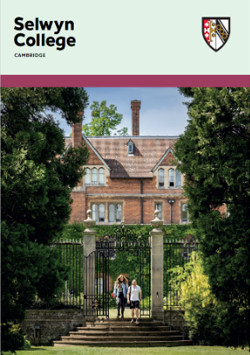Our director of studies, Dr Dacia Viejo-Rose answers a few questions...
What do Archaeologists do?

Are you curious about humanity’s deep past? The research archaeologists do ranges widely across time and space – from discovering where the fold in Tutankhamun’s mask came from, to studying the population genetics of a south-east Asian island, to uncovering the impact of plague on medieval Cambridge. These are just a few examples of the work currently happening within the Department of Archaeology; if you study with us at Cambridge, you will have the opportunity to take part in this research as it evolves.
How is Archaeology relevant today?
While the questions that archaeologists ask are about understanding the past, the implications of the answers have enormous potential impact for understanding contemporary societies. You will gain insights into many of the most important challenges for human life on earth in the present day, from climate change to economic inequality, from pandemic diseases to the destruction of heritage in wartime, from genetic mutations to the political uses of the past to forge identities.
What goes into an Archaeology degree?
The degree programme is outstandingly broad and includes four distinct tracks – Archaeology, Biological Anthropology, Assyriology and Egyptology. Whether you are interested in the sciences, history, politics or languages, whether you love experiments, theory or literature, in Archaeology any combination of these is possible.
- Archaeology uses material evidence to explore the nature and development of particular societies and to explain the variations and commonalities of the human past.
- Biological Anthropology explores human evolution, biology and behaviour, and the interaction between biology and culture.
- Assyriology is the study of the languages, cultures, history, archaeology and religion of ancient Mesopotamia (Sumer, Babylonia and Assyria).
- Egyptology is the study of the history, languages, society, archaeology, and religion of Ancient Egypt.
arriving at Mont St Michel
Over the course of your degree, you might find yourself studying the behaviour of chimpanzees, learning about our oldest human ancestors, translating Egyptian hieroglyphs, learning about radiocarbon dating, examining imagery in a Babylonian poem, or knee-deep in a site excavating to discover new evidence to find answers to some of the many questions that remain about both our distant and more recent past.
By the end of your degree you will have engaged in the detailed study of primary sources, you may have studied an ancient language, and you will probably have written your first piece of independent research (in the form of a 10,000 word dissertation).
How is Archaeology useful for finding a job?
Whatever interests you pursue and develop, the archaeology degree will refine your existing skills and build new ones, making you an informed and intelligent analyst of complex evidence, as well as a critical thinker, and an articulate presenter and writer of your ideas.
While about half of our graduates go on to archaeological careers or postgraduate study, many go on to careers in sectors as varied as media, commerce, diplomacy, advertising, museums, conservation and health, and others.
The skills you’ll learn in your degree are highly valued by employers around the world:
- Team work
- Evidence evaluation, advocacy and debate
- Project Management
- Planning and Budgeting
- Use of quantitative and qualitative data
- Oral, written and visual presentation
- Public engagement
- Scientific lab work
- Geography and landscape analysis
- Sampling techniques and strategies
- Interpretation of maps and satellite imagery
- In-depth knowledge of world history, culture and religion
What is studying Archaeology at Cambridge like?
here a 'striding lion' from the Processional Way in Babylon
at the Pergamon Museum in Berlin
We offer you research-led teaching. That means that the content of our modules is often at the cutting-edge of ongoing research. Our teaching combines lectures, seminars, practical work, language classes, and lab experience. You will have extensive contact with staff through our small-group tutorials. Fieldwork experience is a vital element of the Archaeology course, and there are many opportunities for students to join Department-based research projects.
As a student of Archaeology at Cambridge, you will work closely with and alongside teaching staff, postdoctoral researchers and graduate students. You will be able to experience a dynamic and diverse research environment. With your dissertation or lab projects you might have the opportunity to contribute to one of the big research projects hosted by our Department. We are a friendly Department with students and staff members from all over the world.
Our excellent resources include the Cambridge Archaeological Unit, a well-equipped IT suite, purpose-built laboratories and dedicated libraries. In addition, the Duckworth Collection of human and primate skeletal remains and fossil hominin casts, the Museum of Archaeology and Anthropology and the Fitzwilliam Museum provide access to extensive collections of primary sources of world importance.
What about Archaeology at Selwyn?
Choosing a college is quite personal as it is the place and community that will become your home. As teaching in Archaeology is centrally organised by the Department you will get the same academic offering at any college. That said it is always a good idea to see who the Director of Studies (DoS) for Archaeology is! At Selwyn you will find a friendly college that is just the right distance from the Department to feel that you are ‘getting away’ while still close enough to make a mad dash to your lectures and get there in under 15 minutes. We have an approachable DoS who lives on site and so can easily be found for a quick chat when needed and who works with the Selwyn librarians to ensure that you have the books you need close at hand.
Studying archaeology at Selwyn has been hugely a fulfilling and exciting experience. I have handled fossils from 300,000 years ago, ancient Mayan jade, and diagnosed diseases of a Roman skeleton. This degree has given me experience in both labs and the field, enhancing my analytical skills and engaging with source materials. It has also given me the opportunity to travel the world, to work on archaeological digs - from Belize to Hungary - in a way very few other degrees do.
(Helen, graduated July 2020)
Being an Archaeology student at Selwyn
Our Archaeology students at Selwyn have a track-record of achieving solid academic results while actively participating in a wide range of extra-curricular activities and clubs ranging from rowing and archery to rambling and organising the Selwyn Snowball. A number of our students have gone on to win places at highly competitive graduate programmes.
The subject at Selwyn
As shown above, Archaeology covers a very large range of topics, spanning the evolution of humans through the development of farming, ancient civilisations and world empires, as well as the role of material culture in human life and of heritage in modern societies. As with any College offering Archaeology, students at Selwyn can follow all of the available streams: Archaeology (covering all world cultures), Biological Anthropology, Egyptology and Assyriology.
Archaeology students at Selwyn, and at Cambridge in general, also benefit from the fact that Cambridge is one of the largest centres of archaeological research in Britain with seventeen laboratories which research everything form carbonised pollen and climate change to archaeogenetics and diseases. Students have direct hands-on access to world-class collections in Cambridge’s museums, libraries and research centres. Practical sessions for students mean that you might find yourself handling prehistoric pottery, learning excavation and surveying techniques, or in the British Museum deciphering an ancient text. There are a number of training excavations and field trips including a week abroad in Year 2.
Subject requirements
We do not expect particular combinations of A-level subjects. What we look for in applicants is ability, motivation, and intellectual curiosity. Since Archaeology is such a broad field, our students have backgrounds in everything from Chemistry to Classics, History to Biology, English to Physics, Philosophy to Geography. The course is based on engaging with a wide range of literature, so candidates must also be able and willing readers.
The Teaching Fellows
Our Director of Studies for the Archaeology Tripos is Dr Dacia Viejo-Rose whose research interests are cultural heritage and the politics of the past. She coordinates the core paper “The Past in the Present”.
Interviews
There are two interviews (a subject interview and a general interview). The subject interview is with the Director of Studies and a colleague from the Department. The object of this interview is to ascertain that the candidate has both a general interest in the subject matter of Archaeology and an independent or critical way of looking at things. You will also have a shorter general interview. This is intended to let us find out more about your motivation in applying for Archaeology at Cambridge. It is intended to give us a fuller sense of your aptitude for your chosen course, the maturity of your approach towards academic work, and your interests in and beyond Archaeology.
Written work
Candidates are also asked to send in advance two pieces of recent marked and relevant school work in a subject (or subjects) of their choice. They may be used as the basis for discussion in part of the subject interview.
March 2025


